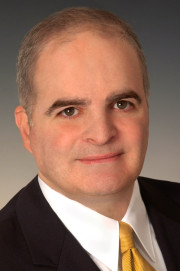LEGAL MATTERS: What Can You Do About Robo-Calls?
Wednesday, August 28, 2013
Since the 1990’s,the federal Telephone Consumer Protection Act has prohibitedtelemarketers from both a) making prerecorded sales and debt collection calls to your residential telephone number, and b) making prerecorded or autodialed (i.e. dialed by a machine, not a person) sales and debt collection calls to your mobile phone number, with two big exceptions.Unsurprisingly, the sleazy companies that pitch their products using robo calls took full advantage of the exceptions. But the Federal Communications Commission has stepped in to curtail the exceptions and crack down on unsavory robo calling businesses.
The first exception was a company could call you if it had an "established business relationship” with you. (Department stores would claim they had that with you if you had one of their credit cards.) The FCC eliminated that exception last year.
GET THE LATEST BREAKING NEWS HERE -- SIGN UP FOR GOLOCAL FREE DAILY EBLASTThe second exception was a company could robocall you if you gave it your “prior express consent.” Since the consent did not have to be in writing, companies came up all sorts of creative ways to trick people into giving their consent. Effective October 16, 2013, the FCC says the consent be in writing which should cut down on the games companies played to get consent.
Enforcing the Law
Rather than creating a government bureaucracy to enforce the TCPA, Congress decided to provide incentives for consumers and their lawyers to enforce the Act through private lawsuits. The theory was companies would obey the law instead of having to pay mandatory damages and attorney fees to the consumers who caught them cheating and sued.It was a good thought but consumers have not gotten the message and most just shrug off robo calls. Don’t be a passive victim! If you get an unauthorized robo call, talk to an attorney about suing the bastards.
Prohibited Calls
• Unauthorized prerecorded sales and debt collection calls to residential telephone numbers.
• Unauthorized prerecorded sales and debt collection calls to wireless telephone numbers.
• Unauthorized auto dialed sales and debt collection calls to wireless telephone numbers.
Allowed Calls
• Autodialed calls to residential telephone numbers as long as a human being is available to speak with you if you answer.
• Auto dialed and prerecorded calls from pollsters.
• Auto dialed and prerecorded calls from charities trying to raise money.
• Auto dialed and prerecorded calls to business lines.
• Autodialed and prerecorded emergency calls.
More Information
For more information on the TCPA, check out this FCC website or contact a consumer lawyer in your area.
Next Week: The federal laws that protect you from unwanted text messages.
John Longo is a consumer rights attorney practicing law in Rhode Island and Massachusetts. He represents consumers who have disputes with businesses, employees cheated out of their wages or overtime, car buyers stuck with Lemons, and people in need of bankruptcy protection. He is a member of the National Association of Consumer Advocates, the National Association of Consumer Bankruptcy Attorneys, and the Rhode Island Association for Justice.
Related Articles
- LEGAL MATTERS: 4 Reasons Not To Trust The Better Business Bureau
- LEGAL MATTERS: 44 Best Consumer Websites
- LEGAL MATTERS: 6 Things To Know Before You Move In
- LEGAL MATTERS: 5 Things To Do Before Renting Out Your Beach House
- LEGAL MATTERS: 7 Reasons Why You Should Never Invest In A Timeshare




